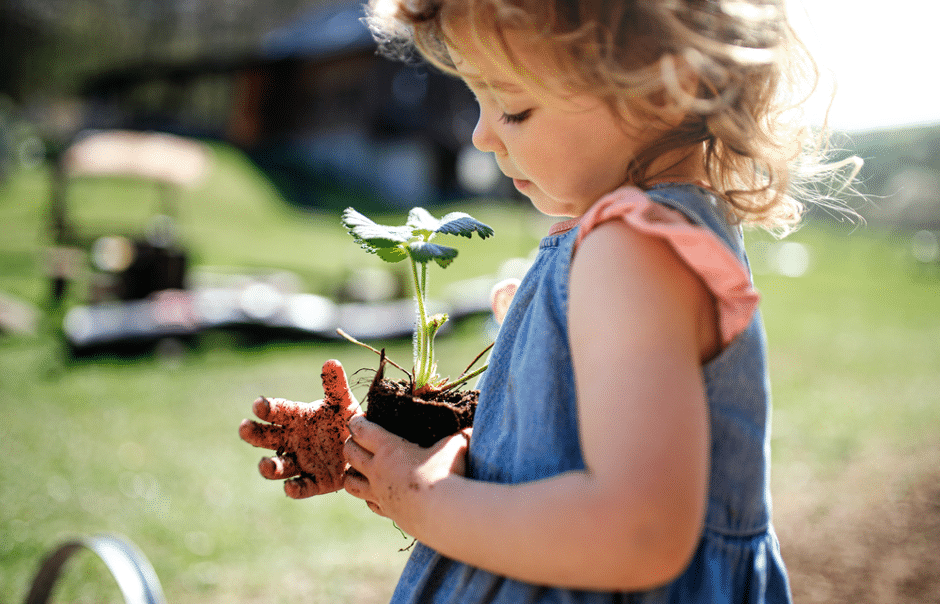Creating an eco-friendly garden is about cultivating more than just plants; it’s about growing a sustainable future. Whether you’re a seasoned gardener or just starting to dig into the soil of sustainability, these seven tips will help turn your garden into an eco-haven.
An eco-friendly garden supports nature while reducing your environmental footprint. It’s a beautiful, purposeful space that conserves resources and provides a habitat for local wildlife. Ready to get started? Here are seven ways to make your garden greener.
Tip 1: Go Native with Your Plants
Choosing native plants is the cornerstone of eco-friendly gardening. They tend to require less water, fewer chemicals, and provide essential habitat for local wildlife. Plus, they’re perfectly adapted to your climate, which means they’ll thrive with minimal intervention.
Organizations like Garden for Wildlife are pushing for more native plants in local gardens as they form the foundation of the local ecosystem, supporting pollinators and providing food and shelter for wildlife. As they’re adapted to your local environment, they’ll grow stronger and healthier, making your garden a natural paradise.
Tip 2: Plant a Pollinator Paradise
Invite nature’s best pollinators to your garden by planting various flowers that bloom at different times of the year. This ensures that bees, butterflies, hummingbirds, and other pollinating species have a consistent source of nectar and pollen, crucial for their survival and the health of your garden.
A diverse selection of flowering plants supports the local ecosystem and brings a lively display of color to your garden throughout the seasons. Plus, pollinators are essential for fruit and vegetable plants to produce a bountiful harvest.
Tip 3: Harvest Rainwater
Rainwater harvesting is an excellent way to conserve water. Collect rain from your roof in barrels or a cistern to water your garden. This saves you money and reduces your reliance on treated water, which is better for your plants and the environment.
Using rainwater helps maintain the natural pH balance of the soil and is free from the chemicals found in tap water. It’s a simple practice that can significantly affect how eco-friendly your garden is.
Tip 4: Encourage Beneficial Insects
Beneficial insects are natural predators of common garden pests. Encourage these helpful critters by planting various species that provide nectar and pollen throughout the growing season.
Creating a habitat for beneficial insects means you can avoid harmful pesticides. Ladybugs, lacewings, and bees keep pests in check and help with pollination, ensuring your garden is healthy and thriving.
Tip 5: Use Natural Pest Control
When pests do show up, opt for natural pest control methods. This could mean introducing predatory insects, using insecticidal soaps, or simply hand-picking pests off plants. Natural remedies are less harmful to the environment and can be just as effective as chemical alternatives.
Using natural pest control methods preserves the biodiversity in your garden and keeps your plants healthy without the side effects of harsh chemicals.
Tip 6: Choose Sustainable Materials
When building garden beds, paths, or structures, choose sustainable materials. Recycled plastics, reclaimed wood, or locally sourced stones look beautiful and reduce your environmental footprint.
Using sustainable materials also means less waste and less energy consumed in production. Your garden structures can be both functional and environmentally conscious.
Tip 7: Rotate Your Crops
Crop rotation is an age-old practice that maintains soil health and reduces the risk of soil-borne diseases. By rotating the types of plants you grow in different areas of your garden each year, you can naturally replenish nutrients in the soil.
This method also helps to break the life cycle of pests, reducing the need for interventions. Crop rotation is a smart, simple strategy promoting a balanced backyard ecosystem.
Embrace the Eco-Friendly Narrative
An eco-friendly garden is more than just a collection of plants, it’s a living, breathing space that connects you to the earth and contributes to the well-being of the environment. By embracing these seven tips, you’re not just gardening; you’re taking an active role in stewarding the planet for future generations and joining a global chorus of eco-conscious gardeners.
Each native plant or sustainable feature in your garden is a step in a greener direction. Embracing these tips doesn’t just add vibrancy to your plot of earth — it echoes a commitment to a healthier planet. So, roll up your sleeves, plant with a purpose, and let your garden be a testament to the fun and fulfillment of living life on the eco-friendly side of the fence!
Angela Spearman is a journalist at EzineMark who enjoys writing about the latest trending technology and business news.

